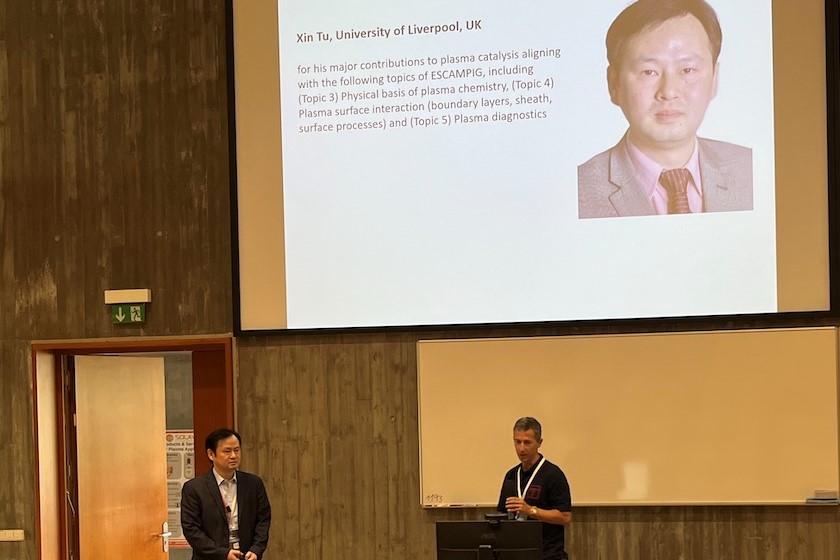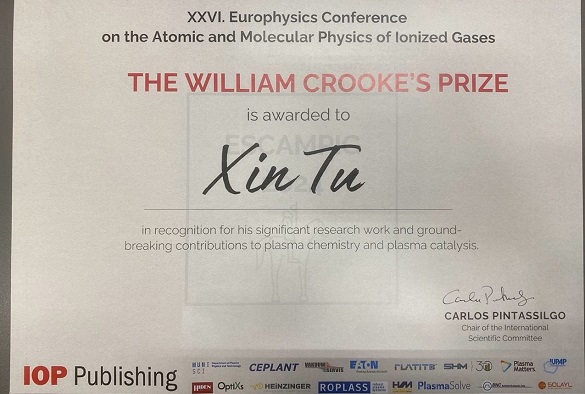Professor Xin Tu awarded 2024 William Crookes Prize
Published on

Professor Xin Tu, from the University of Liverpool’s Department of Electrical Engineering & Electronics, was awarded the 2024 William Crookes Prize for his significant research work and ground-breaking contributions to plasma chemistry and plasma catalysis.
Professor Tu was presented with his award at the 26th European Conference on Atomic and Molecular Physics of Ionized Gases (ESCAMPIG) which took place in Brno, Czech Republic. He also gave a Prize talk on 'Plasma Catalysis for Sustainable Production of Fuels and Chemicals: Challenges and Perspectives' at the conference.
A Professor and Chair of Plasma Catalysis, Professor Tu’s research primarily focuses on plasma chemistry and plasma catalysis for environmental clean-up and the sustainable production of fuels and chemicals.
The European Conference on Atomic and Molecular Physics of Ionized Gases (ESCAMPIG) is a leading international conference in the field of plasma science, covering a broad range of topics on basic and applied plasma science spanning atomic and molecular processes in plasmas and plasma-surface interaction to self-organization in plasmas and to the new research lines with low- and high-pressure plasma sources.
The William Crookes Award was established by the International Scientific Committee at the 19th ESCAMPIG in 2008. It is named after Sir William Crookes, a British physicist and chemist. William Crookes was elected a Fellow of the Royal Society in 1863 and served as President of the Royal Society from 1913 to 1915. He is credited with discovering the element thallium, announced in 1861. He was a pioneer of vacuum tubes, inventing the Crookes tube which was made in 1875. This was a foundational discovery that eventually changed the whole of chemistry and physics.
The William Crookes Prize is jointly sponsored by the European Physical Society and the Institute of Physics and is awarded biennially to a mid-career researcher, between 10 and 20 years after PhD or the equivalent qualification, who has been judged to have made significant contributions in one or more of the areas covered by ESCAMPIG.
